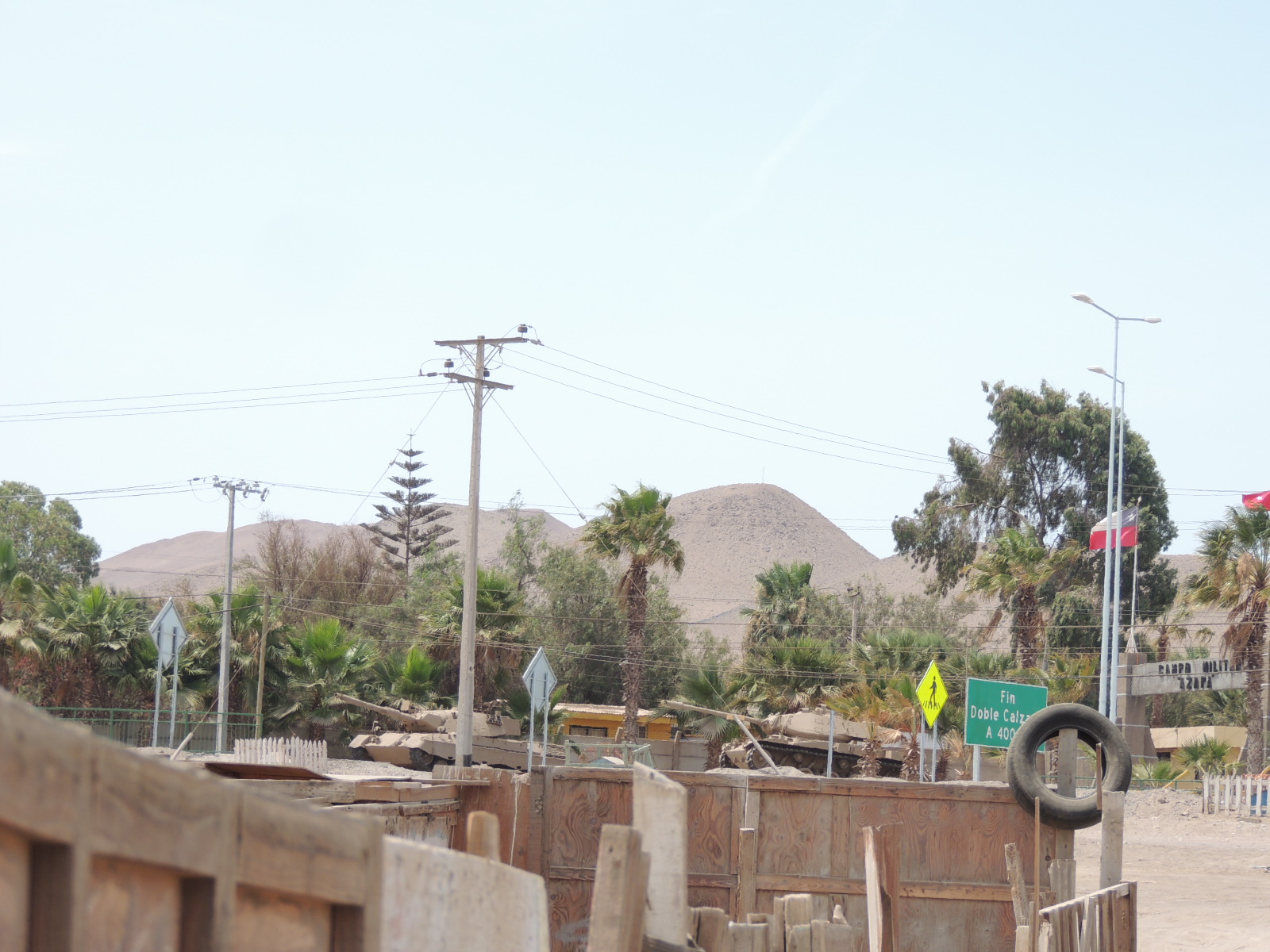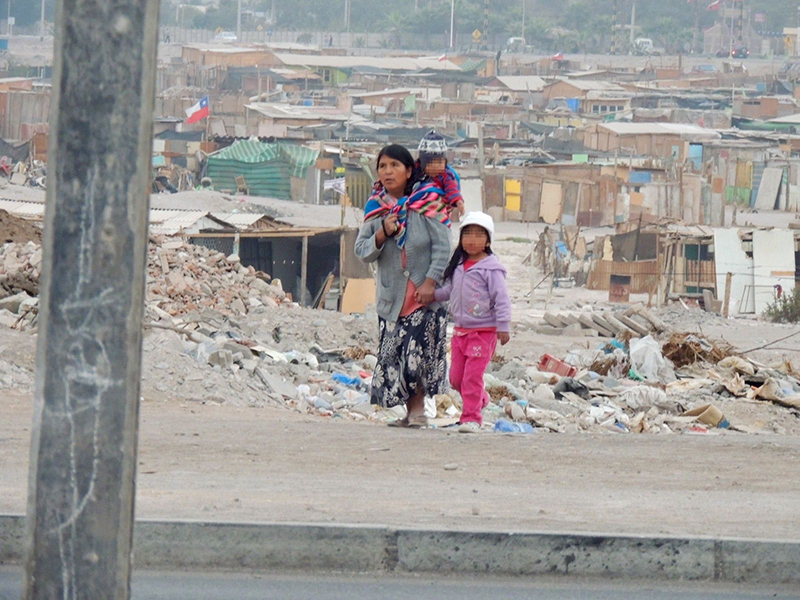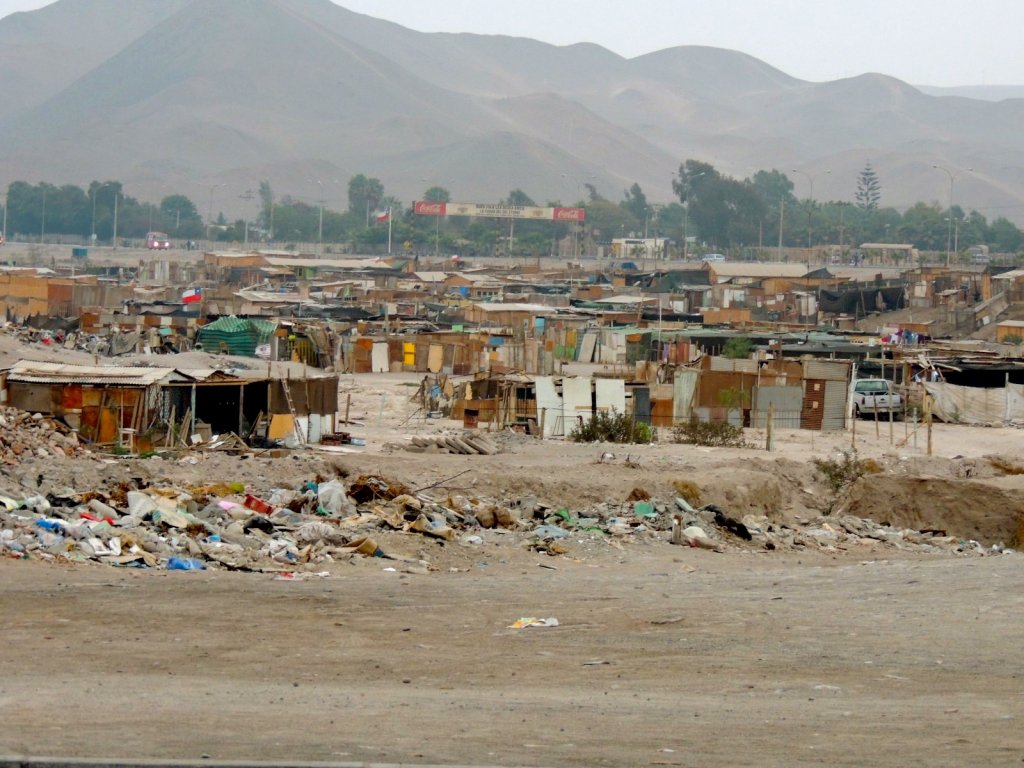The inhabitants of the squatter settlements in the border city of Arica, mostly indigenous migrants from the Peruvian-Bolivian highlands, feel the effects of the racialized geography of northern Chile through social discrimination, economic exploitation, and deprivation of their political rights.
In these settlements, migrant residents make palpable the pervasive tension between a mode of visibility that I in my recent article in Security Dialogue analyse in terms of a ‘politics of presence’ and another kind of visibility that is created by the state’s ‘legibility’ techniques.

How do we understand the emergence of unauthorized settlements at state borders? The ethnography of these places, which are mostly inhabited by migrants, often leads to a contradictory description as formations that are simultaneously constrained and made possible by border regimes. I argue that such tension may create the conditions in which political relations—as a driving force for community—emerge, generating new social actors and political worlds. The struggles of migrants living in unauthorised camps to become legitimate urban actors creates unprecedented citizenship practices, which in turn produce new political subjectivities.
In borderlands such as the far north of Chile, a visibility neither framed by the police order nor driven by biopower emerges through the refusal of border migrants to be dispossessed of the lands they occupy. Their commoning practices shed light on our understanding of how politics could emerge from non-citizen actors as a force capable of transforming subjects and places.

The experiences of camp residents on Chile’s northern border provide clues to understanding what the collective act of becoming present from the margins involves. On the basis of such experiences, we have realized that presence, in its urban expression, reveals a point of political potential that opens up spaces for new forms of engagement in urban life. Through this phenomenon, we find a form of politics of presence that is expressed both in the refusal of the migrant squatters to become a mass of uprooted people and in their perseverance toward state recognition of their settlements.
The visibility achieved by the politics of presence of migrant squatters and its translation by the state into a differential inclusion within the nation revealed the gap between the democratic as the enactment of egalitarianism and the police order. In this persistent struggle between the political logic of equality and the police logic of domination, the residents of the unauthorized camps in Arica forge cunning and rebellious political subjectivities that challenge the border regimes by questioning the basis on which rights, and the boundaries of citizenship, are defined.
